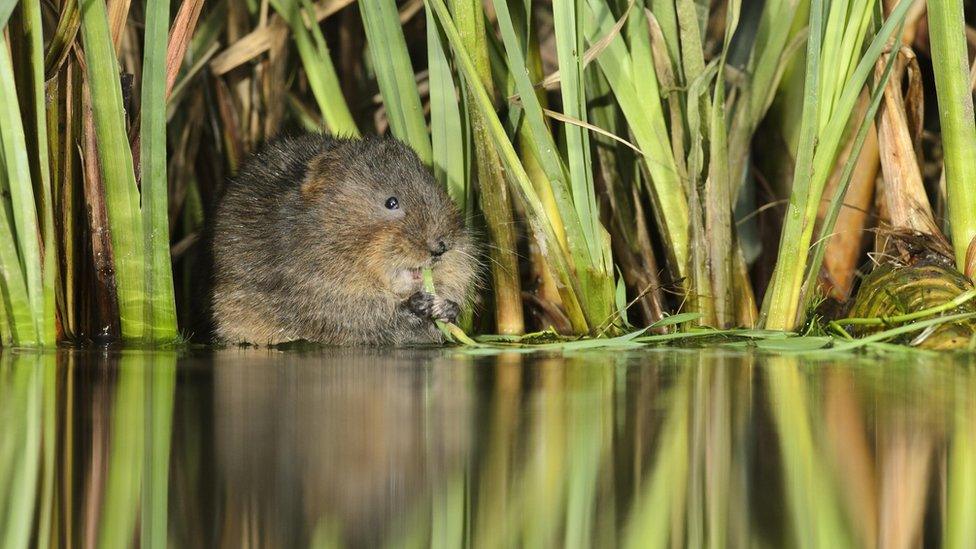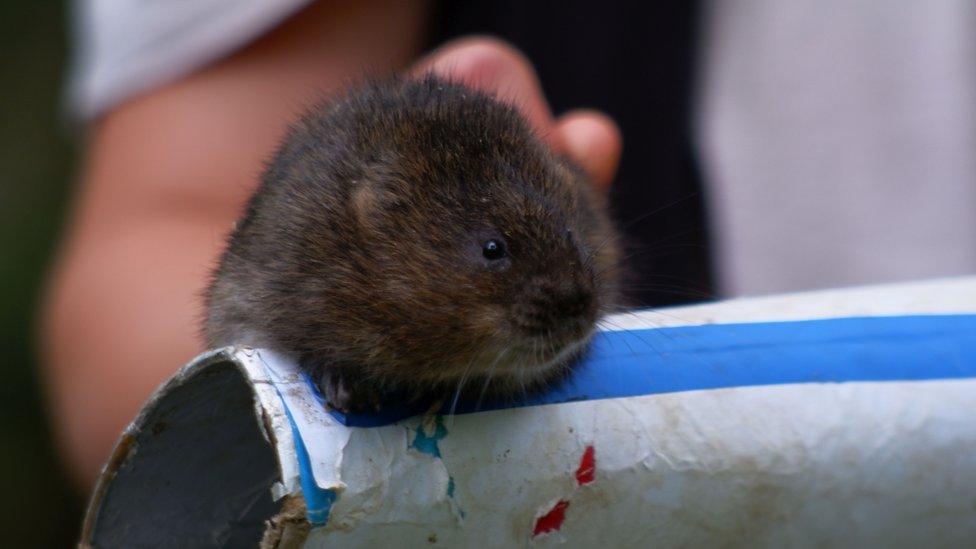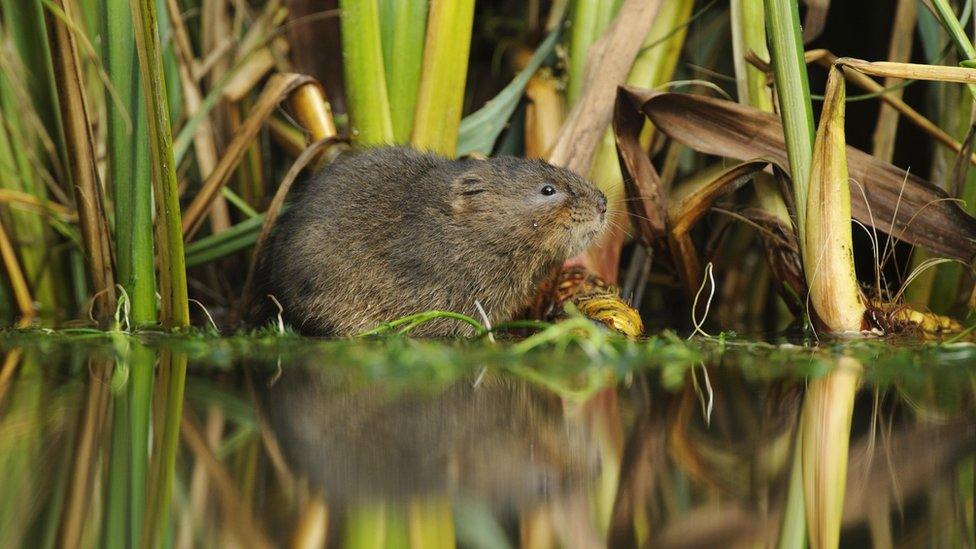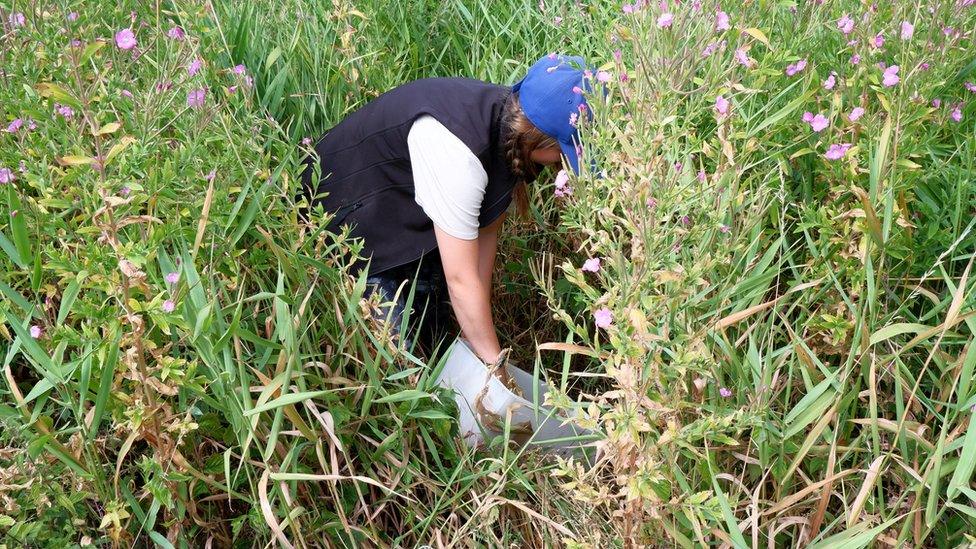Water voles released in River Beane to fight extinction
- Published

The last recorded water vole population on the River Beane was in 2000
More than 130 water voles have been reintroduced to a river in a bid to stop them becoming extinct.
They were released in the River Beane at the Woodhall Estate, near Watton at Stone, Hertfordshire, on Friday.
Water voles have become the UK's fastest declining mammal in the past 50 years and face extinction, the Herts and Middlesex Wildlife Trust said.
The trust said reintroducing them to the river meant the future was "looking brighter".

The water voles were released along the banks of the River Beane, within the grounds of the Woodhall Estate
The last recorded water vole population in the River Beane was in 2000.
The charity said there were "two main factors" for their decline.
"Loss of quality wetland habitats and predation by American mink," it said,
"Both have contributed to a 90% decrease in water vole populations."

The project was funded by the government's Green Recovery Challenge Fund
The charity said it chose to release the mammals on the private Woodhall Estate due to "the landowner's commitment to conservation" and "the good health of the river in that location".
The trust said it hoped to have water voles "back on all Hertfordshire rivers by 2030" and it was looking for other landowners and organisations to help.
Josh Kalms, from the trust, said: "Water voles are a vitally important species in wetland ecosystems and they have a key role to play in maintaining the health of these habitats.
"They are mini ecosystem engineers - their burrowing and feeding by grazing helps keep our river banks and wetlands in good condition."
Thomas Abel Smith, managing director of the Woodhall Estate, said: "I am delighted to support the reintroduction of these wonderful wild animals, who have sadly been missing from this estate and the River Beane for so long."

Volunteers helped with the release on Friday

Find BBC News: East of England on Facebook, external, Instagram, external and Twitter, external. If you have a story suggestion email eastofenglandnews@bbc.co.uk, external